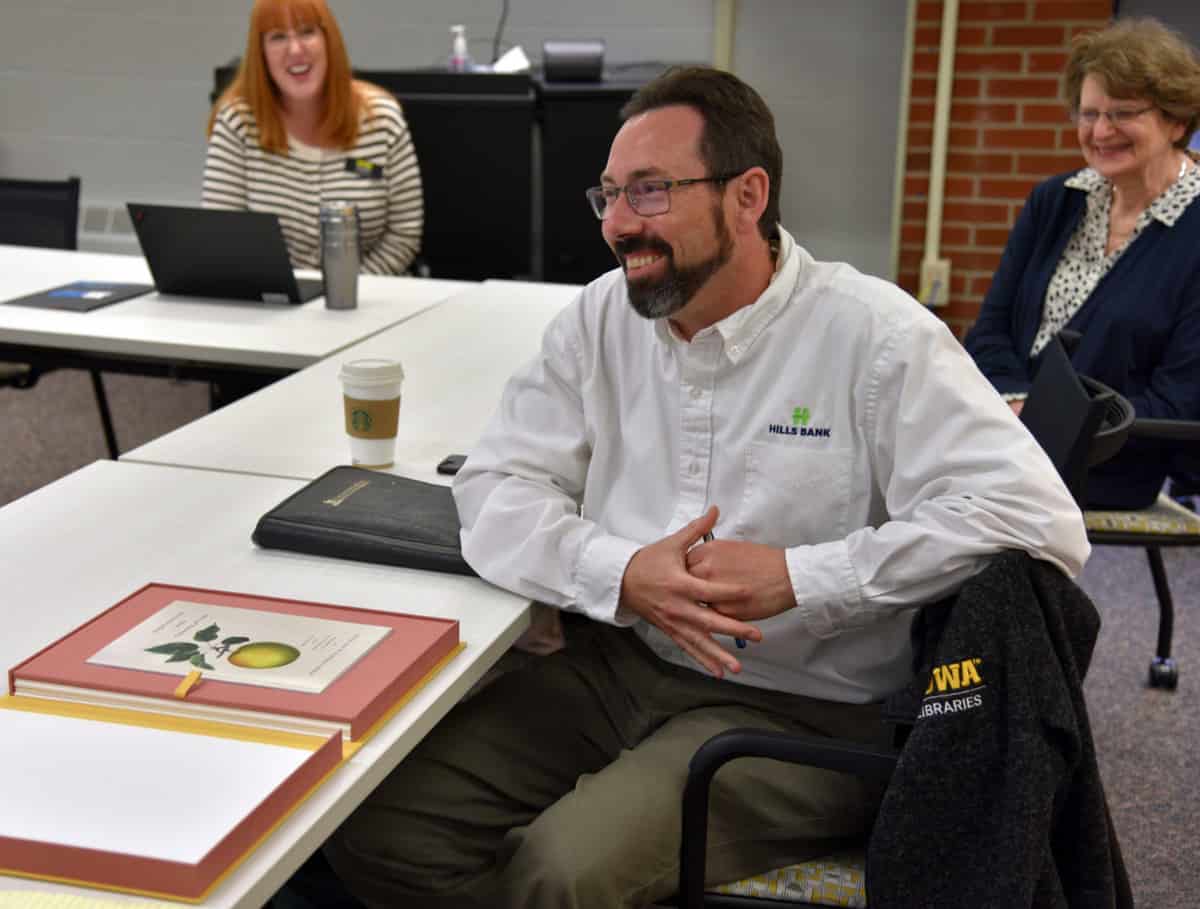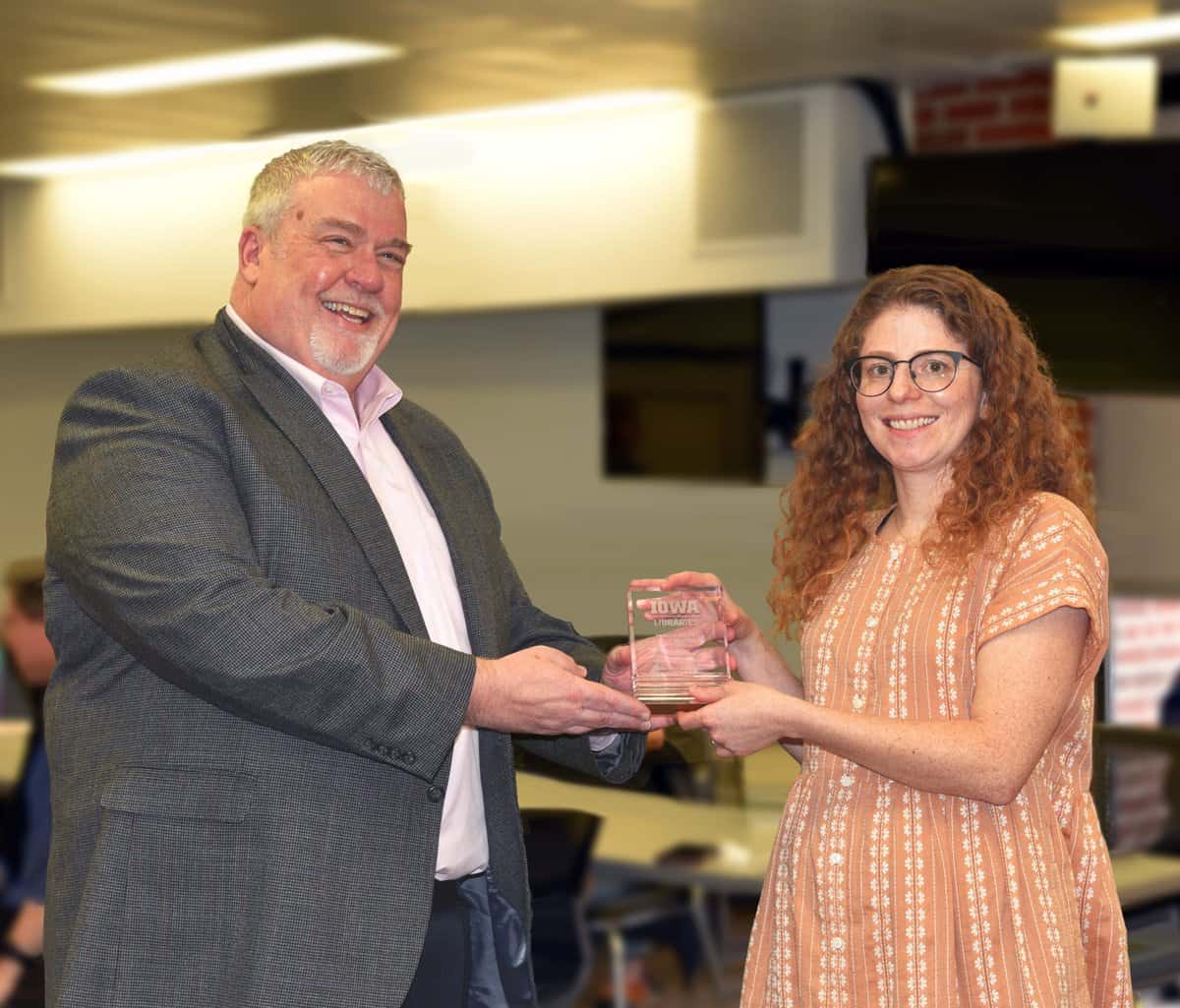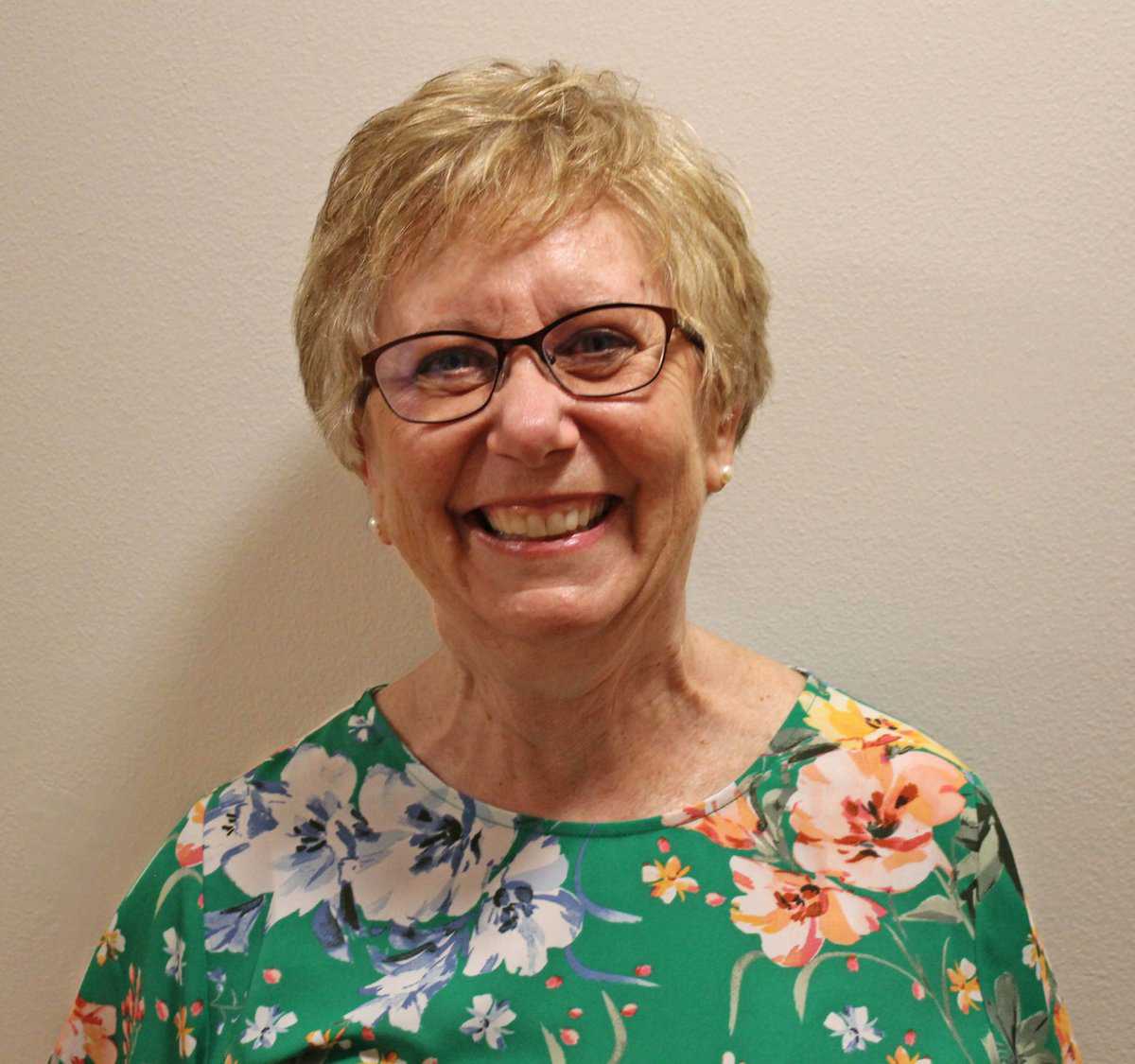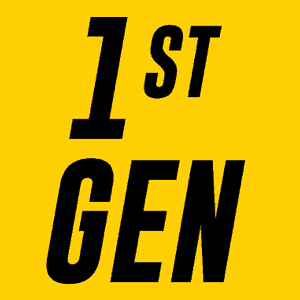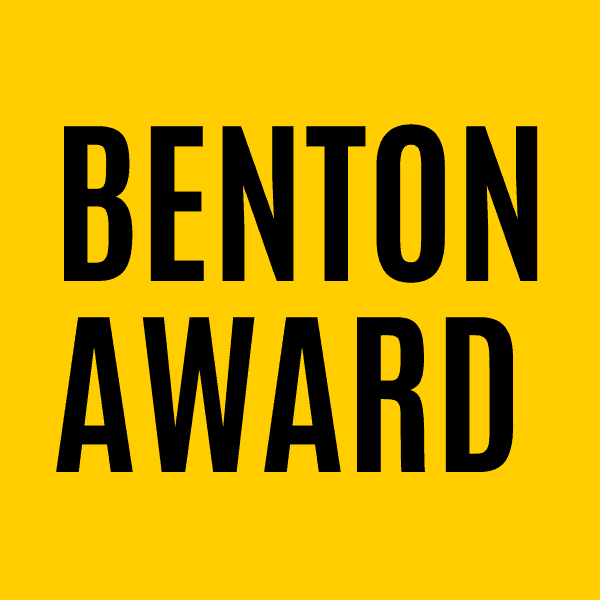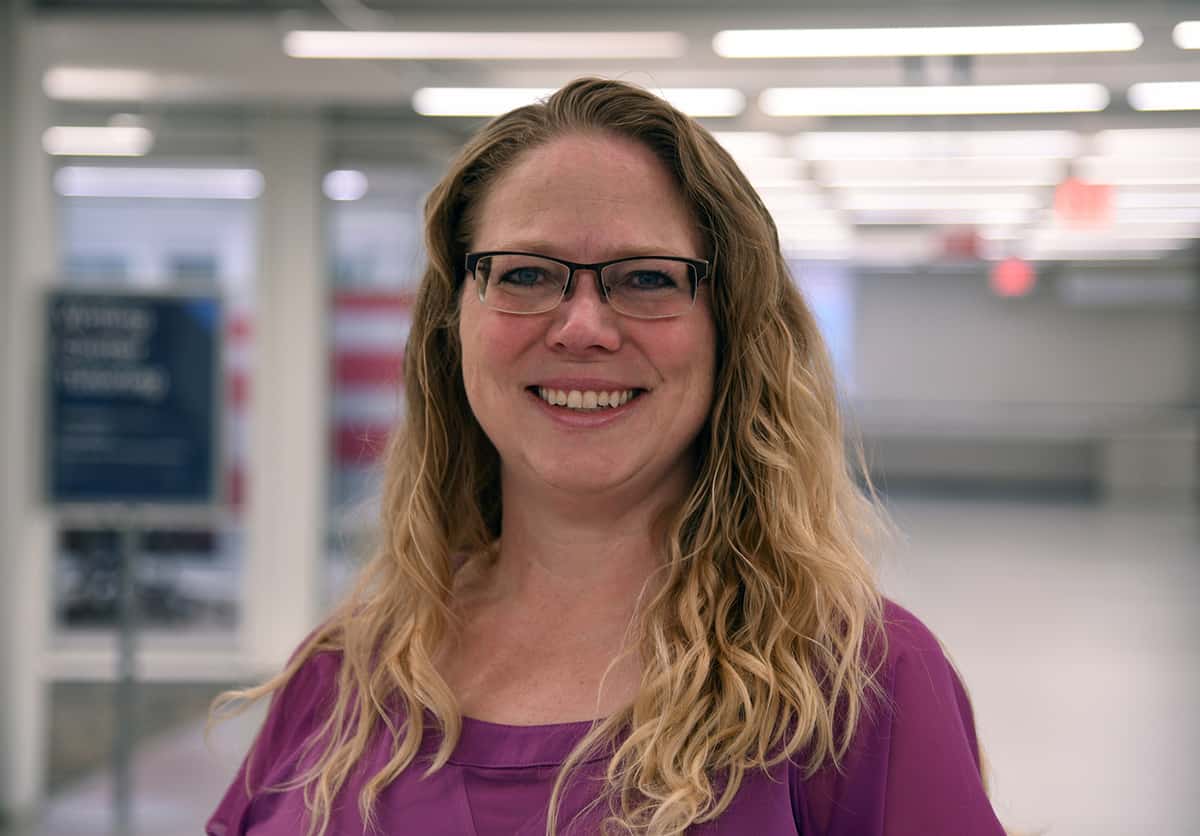When Hawkeye senior Cassandra Parsons arrived on the University of Iowa from her hometown of Williamsburg, Iowa, she knew that a student job would be a key part of her time as an undergraduate. And when Parsons, an English and creative writing major and anthropology minor, started work as a student assistant at the HardinContinue reading “Student employee spotlight: Cassandra Parsons”
Category Archives: University Librarian
Schaefer reflects on serving as chair of the UI Libraries Advancement Council
From the deep connections he’s forged as a student at the University of Iowa and working in the local community to his family’s longstanding ties to the Amana Colonies, Aaron Schaefer knows that having a strong foundation is crucial to being successful both personally and professionally. It’s one of the reasons he decided to becomeContinue reading “Schaefer reflects on serving as chair of the UI Libraries Advancement Council”
UI Libraries Celebrate Mahrya Burnett, Benton Award Recipient
Mahrya Burnett has been named the 2022 recipient of the Arthur Benton University Librarian’s Award for Excellence for her impactful contributions to the future of Open Educational Resources (OERs). As a scholarly communications librarian at the University of Iowa Libraries, Burnett champions advancing OER efforts that allow students to use textbooks and other resources withoutContinue reading “UI Libraries Celebrate Mahrya Burnett, Benton Award Recipient”
Linda Walton Receives the Marcia C. Noyes Award from the Medical Library Association
Linda Walton has been recognized with the 2023 Marcia C. Noyes Award, the highest distinction given by the Medical Library Association (MLA). This competitive national award is presented to a nominee with a longstanding and sustained record of excellence in medical librarianship. Walton’s nomination was supported by colleagues from throughout her distinguished 38-year career asContinue reading “Linda Walton Receives the Marcia C. Noyes Award from the Medical Library Association”
Preserving Hawkeye sports history, one digitized film at a time
From the hardwood to Pasadena and the asphalt track to wrestling mats, now you have an opportunity to help preserve Hawkeye sports history, including the 1959 Rose Bowl, and make it accessible to all through a film digitization project. The University of Iowa Libraries Special Collections and Archives and Conservation and Collections Care have anContinue reading “Preserving Hawkeye sports history, one digitized film at a time”
UI Libraries recognizes first-generation staff and student workers
The University of Iowa Libraries is celebrating its student workers and staff who identify as first-generation students with opportunities to enjoy snacks, coffee, and other refreshments at the Main Library. It’s part of the university’s National First-Generation College Celebration held from Monday, Nov. 7 through Friday, Nov. 11, 2022. At Iowa, first-generation college students areContinue reading “UI Libraries recognizes first-generation staff and student workers”
Culshaw elected to Center for Research Libraries Board of Directors
John Culshaw, Jack B. King university librarian at Iowa, has been elected to a three-year term on the Center for Research Libraries (CRL) Board of Directors. CRL, which is an international consortium of university, college, and independent research libraries, held its 73rd Annual Council of Voting Members Meeting in April 2022. Learn more aboutContinue reading “Culshaw elected to Center for Research Libraries Board of Directors”
Seeking nominations for the Benton Award
The University Libraries is seeking nominations for the Arthur Benton University Librarian’s Award for Excellence. Funded by a generous endowment, this prestigious award acknowledges a library staff member’s professional contributions in the practice of librarianship, service to the profession, scholarship, or leadership which has had a significant impact or innovation to the operations of theContinue reading “Seeking nominations for the Benton Award”
Libraries appoints Soenksen as interim director of DEAI
The University of Iowa Libraries has appointed Rita Soenksen as Interim Director of Diversity, Equity, Accessibility, and Inclusion (DEAI) effective June 7, 2021. During the pandemic, the Libraries established a shared governance structure, including plans to create a DEAI Council. Based on urgent recommendations from its staff-led DEAI action plan team, the Libraries created thisContinue reading “Libraries appoints Soenksen as interim director of DEAI”
Hardin Library Awarded $5.7 Million Grant to Continue Outreach as a Regional Medical Library
The University of Iowa Libraries’ Hardin Library for the Health Sciences has been awarded a five-year grant to continue its role as a Regional Medical Library (RML) in the Network of the National Library of Medicine (NNLM). NNLM consists of seven competitively selected RMLs; Hardin Library will serve Region 6. The National Library of Medicine,Continue reading “Hardin Library Awarded $5.7 Million Grant to Continue Outreach as a Regional Medical Library”

